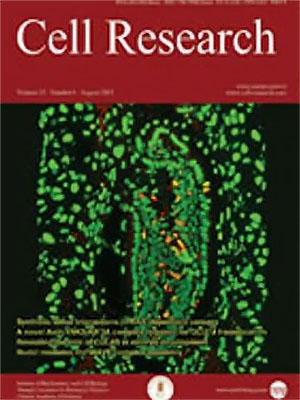
Volume 14, No 5, Oct 2004
ISSN: 1001-0602
EISSN: 1748-7838 2018
impact factor 17.848*
(Clarivate Analytics, 2019)
Volume 14 Issue 5, October 2004: 434-438
ORIGINAL ARTICLES
The effect of C-terminal fragment of JNK2 on the stability of p53 and cell proliferation
Zhi Min Yin1,*, Jian SiMa1, Yi Fan Wu1, Jian Zhu1, Yong Jiang2
1Jiangsu Province Key Laboratory of Biochemistry and Molecular Biology, College of Life Science, Nanjing Normal University, Nanjing 210097, China
2Department of Pathophysiology and Key Lab for Shock and Microcirculation of PLA, The First Military Medical University, Guangzhou 510515, China
Correspondence: Zhi Min YIN(Zhiminy_2000@yahoo.com)
The basal activity of JNK is low in normal growing cells and inactivated JNK targets p53 for ubiquitination. To elucidate if the C-terminal part of JNK is responsible for its binding to p53, the low background tet-off inducible NIH3T3 cell line was selected by luciferase reporter gene and a double stable C-JNK Aa (203-424) cell line was established. After withdrawing tetracycline, the C-JNK fragment expression was induced and cell growth was dramatically inhibited 24 h later. However, the expresion of p53 was found to be increased after the induction of C-JNK fragment, evaluated by transfecting p21waf-luciferase reporter genes. Our further studies showed that C-JNK fragment could form complex with p53 both in vivo and in vitro. Induction of C-JNK fragment in vivo can increase p53 stability by inhibiting p53 ubiquitination.
FULL TEXT | PDF
Browse 1893


